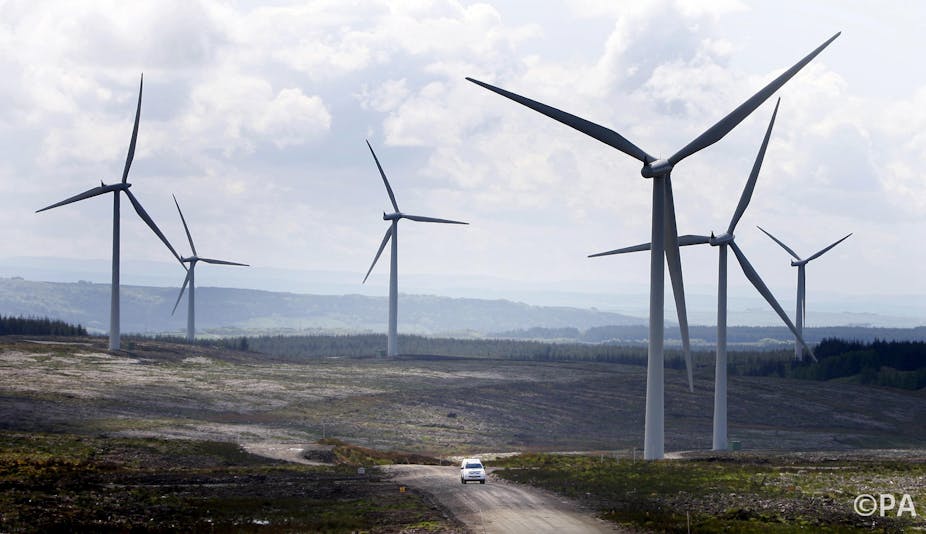The handling of Britain’s energy strategy leaves much to be desired, subject as it is to short term politics over long term planning. We face a trilemma that stems from the opposing tension of climate change, energy security, and the cost of electricity generation. These are the elephants in the chamber during this week’s parliamentary discussion of the Energy Bill.
If we are committed to an 80% reduction of CO2 emissions by 2050, then the UK needs to invest in new storage technology to support and enable renewable energy. Electricity usage is expected to double by 2050 - the scale of this growth is simply huge. In the next few years many of the UK’s coal plants will close, and all nuclear plants are due to close in the next decade. Some of this missing energy may be replaced by new nuclear power stations, if they are built. But in the meantime options include wind (expensive and intermittent), greater use of gas turbines (locking us into high carbon electricity), or keeping dirty coal plants open longer (at an even higher carbon cost). At the moment, de-carbonisation relies heavily on carbon capture and storage - a technology that will be expensive and has yet to be demonstrated on a large scale.
Public toleration for rising energy prices is running thin, especially in comparison with other nations. There is significant energy poverty. But the UK needs to invest an estimated £161 billion in electrification infrastructure. It does not seem credible that the Energy Bill can reverse the lack of confidence private enterprise has shown to invest in the UK. Price hikes could see electricity bills a third higher by 2020, and double by 2030.
So why do we tolerate a marketplace that throws away last night’s energy from wind farms that should have been captured for use today? That we are subsidising the costs of wind farms only to dump the energy they generate is clearly abhorrent. The answer is that we have no cost effective way to provide for the storage of energy.
This is why there is a growing imperative to convince policy makers and researchers to ensure that large scale energy storage solutions are explored. Here at the University of Birmingham we have been exploring energy storage using hydrogen fuel - a fuel with its own filling station that runs a boat, train and cars. We are also committed to opening-up new methods in use of clean liquid air energy storage, that compresses air into cryogenically frozen liquid. Batteries have their place but if progress is to be made we need low cost, large capacity storage solutions that do not consume mineral and metal resources - and we need them fast.
Security of supply is an on-going concern. We are dependent on gas imports and are likely to remain so. Germany has experienced the impact of its own energy policies - relying on nuclear energy exported from France, and experiencing dozens of supply shortfalls that have required intervention in running the national grid system. Security of supply is the major challenge facing many European nations. The world has moved on so quickly - can we be nimble and secure our energy needs?
“Wrong time, wrong place” energy - such as the case of windfarms generating energy at night when few people need it - is endemic with renewable systems. We must find ways to store that energy and dispatch it when needed, so this field urgently needs special considerations in legislation, regulation and market stimulation.
There is a great prospect of delivering a higher percentage of renewables in the UK but the current timeline is not well conceived. A backstop of nuclear and fossil fuels will be needed as a buffer before proper storage technology can ensure the supply security renewables will require. And to provide strong signals to the market to invest in low carbon innovation, there must be clarity on future revenues and transparency on costs. More work needs to be done on setting the carbon floor price and emissions performance standards.
It’s clear that politics needs to catch up with the pace of the economy as the appetite for climate change and de-carbonisation undergoes a shift across Europe. Nimbleness will be required in a fast-changing environment that includes the appearance of new developments like fracking - but this should not displace clear decision making.
One senses that short-term perspectives balanced on gas will win the day in place of coherent long term ambitions. The Energy Bill needs to be bold and ensure the key issues of developing storage technology, power capacity, simplifying business drivers and carbon intensity are addressed.

